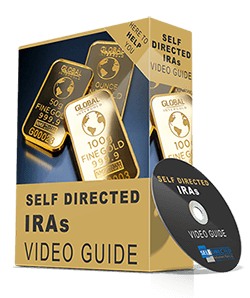Rarely does a person stay with the same company for their entire career. You generally change jobs from time to time for better opportunities, increased salaries, moving locations, or any other reason! So many things are attached to your employment, including your 401(k).
A 401(k) is a retirement savings plan which many employers offer. It allows employees to contribute a portion of their salary to their retirement fund. Employers can match the percentage of employee contribution, increasing the retirement savings for the employee.
When you change your job, you can consider rolling your 401(k) for many reasons, including the ease of managing your account, saving costs, and getting access to better investment options.
If you have recently changed your job or are considering getting a new job and wondering if I should roll over my 401(k) to a new employer, this article will provide you with clarity.
You have a few ways to handle your retirement funds when you change your employment, these include:
- Leaving your 401(k) funds with your previous employer,
- Cashing out your 401(k) account, or,
- Roll over your 401(k) to your new employer’s plan.
You can roll over your 401(k) from your previous employer to your new one with a direct trustee-to-trustee transfer. However, you have to make the rollover within 60 days.
Should I Roll Over My 401K To A New Employer?
The answer to should I roll over my 401(k) to a new employer is – it depends. Transferring your 401(k) to your new employer can streamline your retirement savings by consolidating them into a single account, making it easier to manage and track your progress. However, before you decide, it’s important to assess the investment options and fees in your new employer’s plan. If the plan offers competitive terms and aligns with your financial goals, rolling over your 401(k) could be beneficial. On the other hand, if you prefer greater control over your investments or your current plan offers better features, keeping it may be the wiser choice.
So, start by confirming whether your new employer offers a 401(k) plan, as not all companies provide one. Some may have alternative retirement plans, such as a 403(b) or SIMPLE IRA. Additionally, check if your employer offers contribution matching, which can boost your savings.
If you prefer to keep your finances organized, rolling over your old 401(k) into your new employer’s plan can be a smart choice. This helps consolidate your retirement savings into one account, making it easier for you to manage your finances.
However, this option isn’t always the best. Your new plan might have limited investment choices or high fees, making it less attractive.
Before making any major financial decision, it’s important to carefully explore all available options and potential drawbacks. It is also better to consult a professional financial planner and retirement strategist to make an informed decision.
Pros and Cons of Rolling Over To A New Employer’s 401(k)
Pros
There are several benefits of rolling over old 401(k) to a new 401(k):
-
Potentially More Cost-Effective
Every 401(k) plan has different fees. Hence, comparing costs between your old and new plans is important. In many cases, the new employer’s plan may have lower fees and costs, making it a more cost-effective option.
-
Easier Management
Managing a single retirement account is generally easier than juggling multiple ones. Consolidating your old 401(k) into your new employer’s 401(k) plan helps you keep everything in one place. This reduces the risk of losing track of your savings. A recent study found that as of June 2023, 24.3 million forgotten 401(k) accounts were holding a total of $1.65 trillion in assets.
-
Employers Match
Many employers offer a matching contribution to their employees up to a certain limit. This increases the employees’ compensation package. If your new employer offers a contribution match, you should consider taking advantage and rolling over your old 402(k) to your new employer. This will help increase your retirement funds.
-
Tax Savings
You can request a direct rollover when rolling over your old 401(k) to your new employer’s 401(k). This can help you avoid paying taxes/penalties on your retirement dollars. In a direct rollover, the former employer directly transfers the funds to the new employer’s account. You do not lay hands on the money. You are not liable to pay income taxes on the amount transferred, and you will receive the entire savings amount in your new account.
-
Advantages of the “Rule of 55”
If you retire or lose your job for any reason once you turn 55, you can withdraw funds from your retirement account without any penalties. This Rule of 55 only applies to your current/latest employer. So, you cannot withdraw funds from any previous employer’s plan.
-
Continued Growth Can Compound
When you roll over your old 401(k) to a new 401(k), it ensures your retirement funds continue to grow through compound interest, helping to maximize your retirement savings over time.
Cons
With the many benefits of rolling over an old 401(k) to a new 401(k), there are a few disadvantages also:
-
Possibility of Higher Fees
There is a chance of higher fees with the new account. This can reduce your savings. Make sure you are aware of the fee structure before you opt to roll over your old 401(k) to your new employer.
-
Loss of Investment Options
In the past few years, the investment options in 401(k) plans have been reduced. So, other retirement plans like IRAs can offer better investment options to help you diversify. Consider all options before rolling your old 401(k) to a new one.
-
Limited Control
As an employee, you have limited control in managing your retirement money as a 401(k) is an employer-sponsored plan. The plan administrator is responsible for managing your plan. Once you select your preferred investment options, the plan administrator decides how the plan is maintained.
-
Tax Implications
There may be tax implications when you roll over your old 401(k) to a new 401(k). If your previous employer gives you a check, you have to deposit the funds into your new 401(k) account within 60 days. Your last employer may withhold 20% of the amount for taxes, and you may have to pay the difference from your pocket to finish the rollover. If you miss the 60-day window, the transaction will be considered an early withdrawal, and you must report it on your tax return. Additionally, if you are under 59½, you’ll face an extra 10% penalty.
-
Potentially Different Rules
Your new employer can have different rules and regulations for managing 401(k) accounts, and they will have control over your 401(k) plan. They can change the fees or plan administrator.
How To Roll Over A 401K To New Employer?
Rolling over a 401(k) to a new employer is a straightforward process. Here’s a step-by-step guide:
- Check if Your New Employer Offers a 401(k) Plan: Confirm that your new employer has a 401(k) plan that accepts rollovers. Contact the human resource department to get the necessary details.
- Contact Your Former 401(k) Plan Administrator: Reach out to your old 401(k) plan administrator to request a rollover to the new plan. Inquire about all the forms required and the process for initiating the transfer.
- Choose the Type of Rollover: You can opt for Either of the two:
- Direct Rollover (preferred): Your old employer transfers the funds directly to your new employer’s 401(k) plan, which helps you avoid tax withholding and penalties.
- Indirect Rollover: You receive the funds and then deposit them into the new plan within 60 days. Note that your previous employer may withhold 20% for taxes, and you’ll need to deposit the full amount (including the withheld portion) to avoid taxes and penalties.
- Provide Required Information: You may need to provide your new 401(k) plan details, such as the account number and plan administrator’s contact information. Make sure all forms are completed properly.
- Complete the Rollover: The rollover from the old 401(k) to the new 401(k) can take a few days or weeks. After the funds are transferred, check your new 401(k) account to ensure the funds are deposited correctly.
- Review Your Investment Options: Once the rollover is complete, review your new plan’s investment options. You have the option of selecting different funds or adjusting your investment strategy based on your retirement goals.
- Monitor Your Account: Regularly monitor your new 401(k) to ensure your retirement savings grow according to your plan.
Following these steps, you can easily roll over your 401(k) to your new employer’s plan and keep your retirement savings on track without triggering taxes or penalties.
What Are Your Options For An Old 401(k)?
When you get a new job, you have four options for your existing 401(k):
-
Leave it with your old Employer
If you have the option, you can keep your money with your previous employer. This option can be helpful if your old 401(1) plan has lower fees and solid investment choices.
-
Roll it Over to Your New Employer’s Plan
If your new employer offers a 401(k) and accepts rollovers, this option consolidates your retirement savings into one account.
-
Roll it Over into an IRA
If you want more investment options and greater control over your funds, opt for this option.
-
Cash it Out
Keep this as your last option. When you withdraw funds before you turn 59½, you will have to pay taxes and penalties.
Learn More About Your 401(k) Options:
Factors to Consider Before Rolling Over
Before deciding to rollover your 401(k) to a new 401(k), consider the following:
- Investment Fees & Options – Evaluate and compare the expense ratios and available investment options between your previous and new plans.
- Loan Provisions – If you think you might need a loan, verify whether your new plan allows for it.
- Company Match – If your new employer offers a 401(k) match, rolling over your funds could be a wise choice to consolidate contributions in one account.
- Future Job Changes – If you anticipate changing jobs often, rolling over your funds into an IRA may offer more convenience and flexibility.
Final Thoughts
A 401(k) is an important savings tool for achieving your retirement goals. When you change your job and roll over your old 401(k) to a new 401(k), it’s essential to weigh all your options first. You could also cash it out, transfer it to an IRA, or leave it with your previous employer. Each of these choices has its advantages and disadvantages. Before making any decision, consider all your options carefully and discuss them with your retirement strategist.
Call us today to analyze and evaluate your 401(k) options with our experienced team!
Frequently Asked Questions
Can I roll over my 401(k) to a new employer at any time?
Yes, it is possible to rollover your 401(k) to a new employer at any time, provided your new employer’s plan allows rollovers. But, it is always better to do it at the right time to keep your retirement funds safe and organized.
Will I owe taxes on a 401(k) rollover?
A direct rollover from an old 401(k) to a new one or to an IRA is not taxable. However, indirect rollover may be taxable, and if you do not reinvest the money within 60 days, you are liable for taxes and penalties.
Should I roll over my 401(k) into an IRA instead of my new employer’s plan?
It depends upon your goal. You should transfer to an IRA if you want lower fees, more flexible investments, or more control over your funds as compared to your current employer retirement plan.
Can I roll over my 401(k) if I’ve already contributed to my new employer’s plan?
Yes, you can transfer your old 401(k) to your new employer’s 401(k) even if you have already contributed to your new employer’s plan. Just ensure your new employer accepts rollovers.
What is a direct rollover?
A direct rollover is when your previous employer directly transfers your retirement funds to your new employer’s 401(k) plan without the money coming into your hands. You can avoid tax liabilities with a direct rollover
How do I compare the fees of different 401(k) plans?
You will have to study and review your plan documents and fee disclosures. Check the expense ratios, administrative fees, and other charges mentioned in the documents.
What happens if I cash out my 401(k)?
If you cash out your 401(k) before you turn 59½, you will be charged 10% as an early withdrawal penalty and income tax on the distribution. You should not cash out your 401(k) unless it is an emergency.

My goal is to assist clients/investors in their quest for financial freedom and creating generational wealth through one on one consultation and an abundance of online tools to educate. For the past 5 years I have been a private pension plan consultant with Self Directed Retirement Plans working directly with my partner Rick Pendykoski (owner) or you can .




